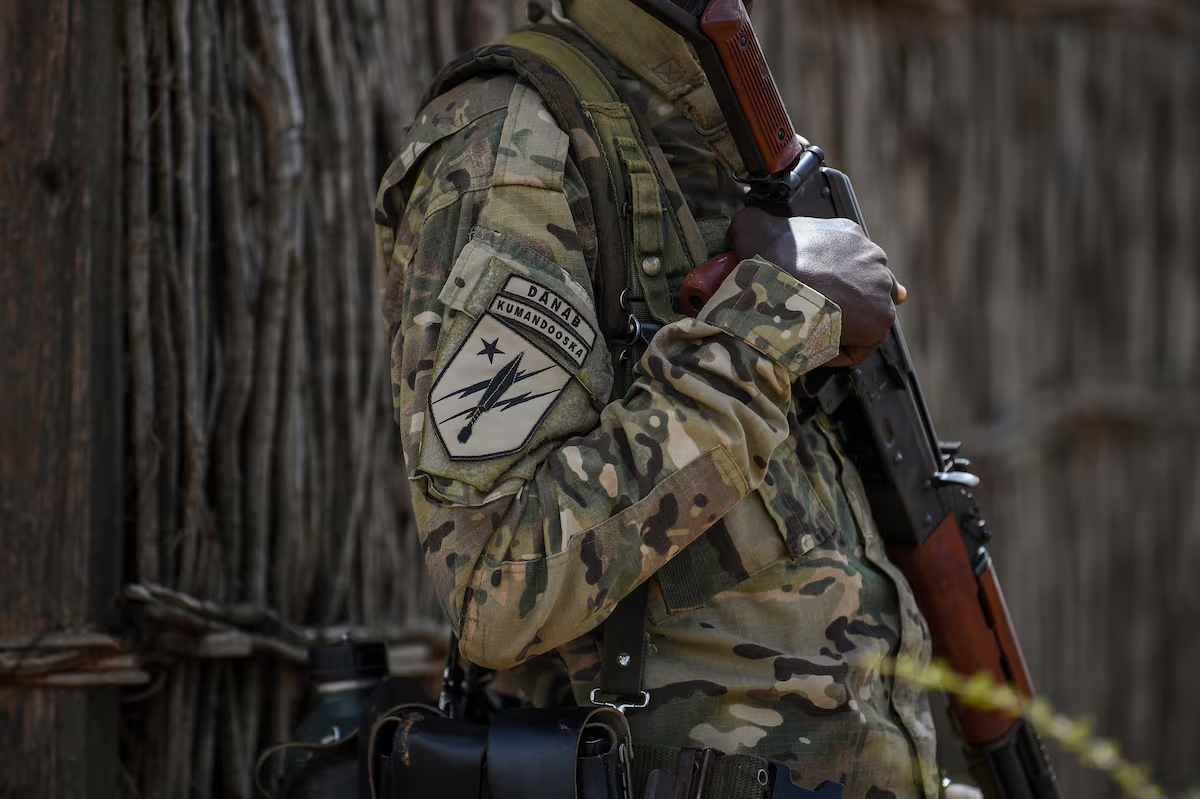Democrats in the House and Senate are going after a set of Pentagon authorities that have for years funded foreign military units across the world without proper oversight, lawmakers say.
The Leahy Law was intended to prohibit U.S. security assistance from going to foreign units that have committed gross human rights violations, but two Defense Department programs — Section 127e and Section 1202 — are currently exempt from any vetting.
Legislation introduced this week by Sen. Chris Van Hollen, D-Md., and Rep. Sara Jacobs, D-Calif., would close that loophole, shutting off funds to specific units found to be committing atrocities, while also expanding the reporting requirements under which the two notoriously secretive programs are subject.
Section 127e funds partners who conduct counterterrorism missions, sometimes with U.S. special operations troops directing them as a surrogate force in combat, such as raids on militant compounds. It started with a small budget of $10 million in the mid-2000s, but grew to about $100 million per year more than a decade later.
Section 1202 was modeled after that program in recent years, but is intended for irregular warfare in the grey zone. This authority was “purpose built” for the shift to great power competition, the former U.S. assistant defense secretary for special operations and low intensity conflict said in 2019.
“Human rights vetting is an essential part of how we engage with other countries, but over the last several years Section 127e and Section 1202 have skirted these vetting requirements and, in some cases, been used with partners who have consistently violated human rights,” Jacobs said in a statement announcing the new legislation. “United States support for unvetted human rights abusers is not only deeply immoral and irresponsible, it is also counterproductive, leading to more unrest, instability and terrorist activity.”
Jacobs proposed an amendment to institute the same reform in last year’s annual defense bill. The amendment was adopted by the House but ultimately cut from the bill during negotiations with the Senate.
The Upholding Human Rights Abroad Act, which was introduced Tuesday, is a new attempt that comes with Senate Democrat support.
The legislation is co-led by Sen. Patrick Leahy, D-Vt., for whom the Leahy Law was named, and Sen. Richard Durbin, D-Ill. Congressmen Tom Malinowski, D-N.J., Joaquin Castro, D-Texas, and Jason Crow, D-Colo., in the House are also backing the bill. No Republicans are signed on, which could stymie the effort.
“This year, we are grateful to be partnering with human rights champions in the Senate, including Senators Van Hollen and Durbin — and especially Senator Leahy, who has championed these issues throughout his career,” an official from Jacobs’ office said in response to emailed questions about the bill’s chances. “We look forward to working with him to close this loophole before his retirement at the end of this term.”
RELATED

In his own statement regarding the legislation, Leahy, who is not seeking re-election, said the Upholding Human Rights Abroad Act will ensure that the Leahy Law is applied uniformly.
“The purpose of the Leahy Law is to prevent U.S. assistance from supporting units of foreign security forces that violate human rights,” Leahy said. “Yet the Pentagon has not applied this standard to certain security cooperation programs with foreign forces. The Pentagon should have closed this loophole on its own initiative.”
Section 127e has been used to conduct operations in Somalia, Libya, Kenya, Tunisia, Cameroon, Mali, Mauritania and Niger — all of which have had serious concerns raised in the State Department’s Country Reports on Human Rights Practices for years.
For instance, even after acknowledging human rights violations committed by an elite Cameroonian unit, the Pentagon continued to employ the force under Section 127e, the Intercept reported in March. The unit’s atrocities included torture and extrajudicial killings at a base where detainees testified to seeing and hearing uniformed Americans, according to Amnesty International.
Between 2017 and 2020, U.S. special operations forces conducted at least 23 separate 127e programs across the world, the Intercept reported in July.
In addition to forcing the Pentagon to conduct human rights vetting for Section 127e and Section 1202 recipients, the legislation would require biannual reports and assessments of how support to partner forces advances U.S. national security priorities.
Kyle Rempfer was an editor and reporter who has covered combat operations, criminal cases, foreign military assistance and training accidents. Before entering journalism, Kyle served in U.S. Air Force Special Tactics and deployed in 2014 to Paktika Province, Afghanistan, and Baghdad, Iraq.





